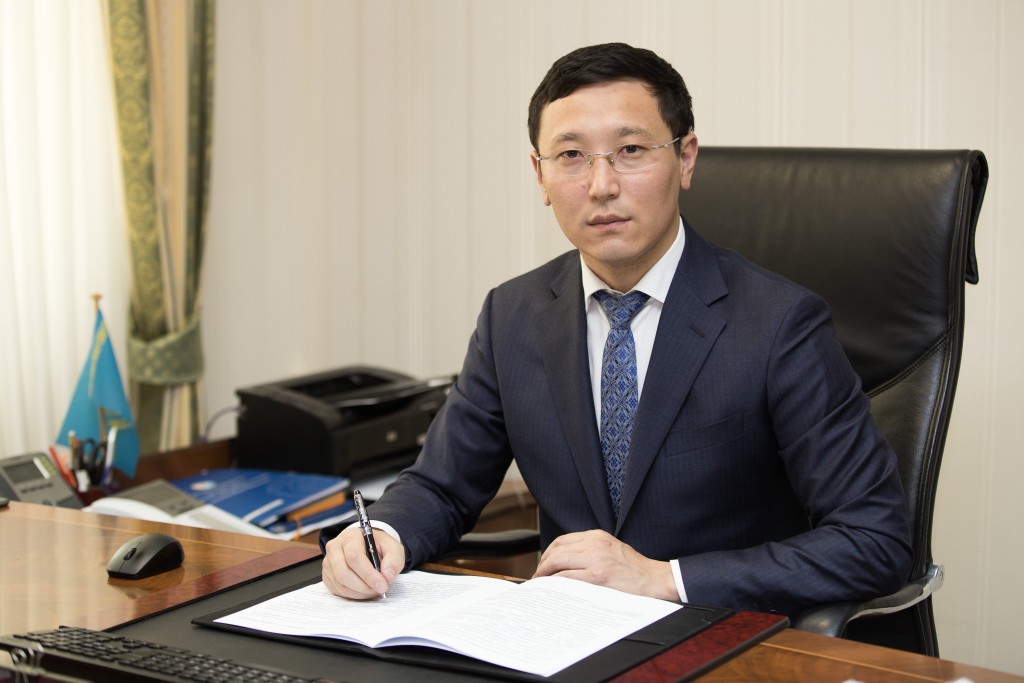The Digital Kazakhstan state programme was approved in December 2017. It is an important programme that aims to improve the standard of living of every Kazakh citizen through the use of digital technologies. The plan is to implement the programme within five years from 2018 until 2022 in five key areas: digitisation of the economy, transition to digital government, implementation of the Digital Silk Road, human capital development and creating an innovation ecosystem. Within these five areas, there are 17 specific goals and 120 projects.
In the economy digitisation sphere, the aim is to increase productivity in all sectors. Digital Mine is one of the most significant projects – this information system collects data through sensors installed on the equipment, provides optimal production processes, monitors reagent consumption, reduces equipment downtime and quickly identifies and eliminates emergency situations.
Another area is the transition to digital government. We aim to digitise the activities of governmental bodies, reduce paperwork, increase citizen participation in state governance and implement the Smart City technology. One of the examples is Sergek (Vigilant), a system for monitoring the observance of traffic rules. It was introduced recently and is expected to improve the observance of traffic rules. When the system registers a traffic offense, it automatically generates a protocol and sends it to the violator’s address. Another aim is to implement a project on creating operational management centres for Kazakhstan’s small towns. Thus, not only large cities, but also mono-towns will be equipped with new technologies, which will lead to a decrease in the level of crime and offenses.
The expansion of communication networks and ICT infrastructure, as well as strengthening cybersecurity is the third and no less important sphere of the programme – the implementation of the Digital Silk Road. From 2018 to 2020, 2,616 rural settlements will be provided with broadband access to the internet. The initiative includes modernising the satellite communication system, providing fibre-optic communication lines to remote settlements, increasing the transit capacity and improving digital television and radio broadcasting network.
Developing human capital is the fourth area. Its goal is to update the education system in accordance with the best world practices. One of the projects to be implemented is on updating secondary education programmes by introducing new programming languages and STEM [science, technology, engineering and mathematics] elements. Elements of robotics, virtual reality, 3D printing, among others, will be introduced to the curriculum. This area also includes a project on conducting training courses for the population on developing basic digital skills. Retraining will allow our citizens to meet professional standards and remain in demand.
The final area – creating an innovative ecosystem – also has specific tasks identified. Those include supporting innovative development sites, promoting technological entrepreneurship and start-up culture, attracting venture financing and creating demand for innovation. The Astana Hub international start-up hub is a vivid example. It is expected to provide domestic IT specialists and start-ups with an opportunity to start developing their projects today.
Only two months have passed since the adoption of the Digital Kazakhstan programme. However, our citizens are already observing tangible results. There are new means of navigation that help reduce the time spent on a trip and choose the most optimal routes. There are applications that help find almost any goods.
There is a successfully operating digital farm in the North Kazakhstan region, where a computer automatically calculates the volumes of feed and the time of feeding. First, it reduces the costs for personnel maintenance, and secondly, it increases production efficiency.
There are also tangible results in healthcare: computer equipment in medical institutions constitutes 81.3 percent and access to the Internet is provided to 55.6 percent of medical institutions.
An electronic health passport is being created for each patient, which will allow the patient’s entire medical history to be stored online. First results of this and other initiatives are already evident despite the fact that the programme was adopted just two months ago.
It is noteworthy that President Nursultan Nazarbayev stressed that the implementation of the Digital Kazakhstan state programme is the government’s main task.
The author is Chairman of the Zerde National Infocommunication Holding.


